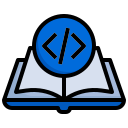Troubleshooting Common Mistakes in Beginner Programming
Programming is an exciting journey, but for beginners, it’s easy to stumble upon common problems that can halt progress. Understanding these pitfalls and knowing how to troubleshoot can foster growth and enhance learning efficiency. Whether you’re a student or a hobbyist, identifying and resolving these issues will make your coding experience much smoother.

Syntax errors occur when the code violates the grammatical rules of the programming language. They often cause the program to fail to execute. Beginners can prevent these errors by familiarizing themselves with the syntax of the specific language they are using and practicing carefully as they type.
Syntax Errors and How to Avoid Them
Logical Errors and Debugging
Logical errors occur when a program runs without crashing but produces incorrect results. These issues can be more challenging to identify because there are no error messages to indicate that something is wrong. Understanding the logic of your code and thoroughly testing various scenarios can help pinpoint these errors.

Runtime Errors and Prevention Techniques
Runtime errors are detected during program execution and can cause the program to terminate unexpectedly. Common causes include dividing by zero, accessing unavailable resources, or using insufficient memory. Being aware of these causes can help in writing safer, more reliable code.
Learning to handle exceptions properly is essential for minimizing runtime errors. Most programming languages offer mechanisms for catching and managing exceptions without crashing the program. Knowing how and when to use try-catch blocks can prevent abrupt terminations and improve user experience.
Writing robust code that anticipates potential runtime errors can reduce these occurrences. Best practices include validating input data, checking resource availability, and using safe coding patterns. Ensuring you handle exceptions gracefully can provide a smoother interaction for users and developers alike.

